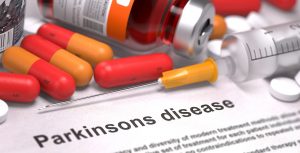- Home
- Editorial
- News
- Practice Guidelines
- Anesthesiology Guidelines
- Cancer Guidelines
- Cardiac Sciences Guidelines
- Critical Care Guidelines
- Dentistry Guidelines
- Dermatology Guidelines
- Diabetes and Endo Guidelines
- Diagnostics Guidelines
- ENT Guidelines
- Featured Practice Guidelines
- Gastroenterology Guidelines
- Geriatrics Guidelines
- Medicine Guidelines
- Nephrology Guidelines
- Neurosciences Guidelines
- Obs and Gynae Guidelines
- Ophthalmology Guidelines
- Orthopaedics Guidelines
- Paediatrics Guidelines
- Psychiatry Guidelines
- Pulmonology Guidelines
- Radiology Guidelines
- Surgery Guidelines
- Urology Guidelines
Bipolar disorder patients may more likely develop Parkinson's disease later on

People who have bipolar disorder may be more likely to later develop Parkinson's disease than people who do not have bipolar disorder, according to at a study published in Neurology®, the medical journal of the American Academy of Neurology.
"Previous studies have shown a relationship between depression and Parkinson's disease, but few studies have looked at whether there is a relationship between bipolar disorder and Parkinson's," said study author Mu-Hong Chen, MD, PhD, of Taipei Veterans General Hospital in Taiwan.
For the study, researchers examined a national Taiwanese health database for people were diagnosed with bipolar disorder between 2001 and 2009 and who had no history of Parkinson's disease, for a total of 56,340 people. They were matched with 225,360 people of the same age, sex and other factors who had never been diagnosed with bipolar disorder or Parkinson's disease as a control group. Then the two groups were followed until the end of 2011.
During the study, 372 of the people with bipolar disorder developed Parkinson's disease, or 0.7 percent, compared to 222 of those who did not have bipolar disorder or 0.1 percent.
After adjusting for other factors that could affect the risk of developing Parkinson's disease, such as age, sex, use of antipsychotic medications, and medical issues such as traumatic brain injury and cerebrovascular diseases, people with bipolar disorder were nearly seven times as likely to develop Parkinson's disease as people who did not have bipolar disorder.
The people with bipolar disorder who developed Parkinson's disease did so at a younger age than the control group members who developed the disease -- 64 years old at diagnosis compared to 73 years old.
People who were hospitalized more often for bipolar disorder were more likely to develop Parkinson's disease than those who were hospitalized less than once per year. A total of 94 percent of those with bipolar disorder were hospitalized less than once per year; 3 percent were hospitalized one to two times per year, and 3 percent were hospitalized more than two times per year. Those who were hospitalized more than two times per year were six times more likely to develop Parkinson's disease than those who were hospitalized less than once per year. People who were hospitalized one to two times per year were four times more likely to develop Parkinson's disease than those who were hospitalized less than once per year.
"Further studies are needed to investigate whether these diseases share underlying processes or changes in the brain," Chen said. "These could include genetic alterations, inflammatory processes or problems with the transmission of messages between brain cells. If we could identify the underlying cause of this relationship, that could potentially help us develop treatments that could benefit both conditions."
A limitation of the study is it included only people who sought medical help for their bipolar disorder. Also, the database did not include information on family history of Parkinson's disease or environmental factors that could increase people's risk of developing the disease.
The study was supported by Taipei Veterans General Hospital and the Taiwanese Ministry of Science and Technology.
For more details click on the link: DOI: 10.1212/WNL.0000000000007649

Disclaimer: This site is primarily intended for healthcare professionals. Any content/information on this website does not replace the advice of medical and/or health professionals and should not be construed as medical/diagnostic advice/endorsement or prescription. Use of this site is subject to our terms of use, privacy policy, advertisement policy. © 2020 Minerva Medical Treatment Pvt Ltd